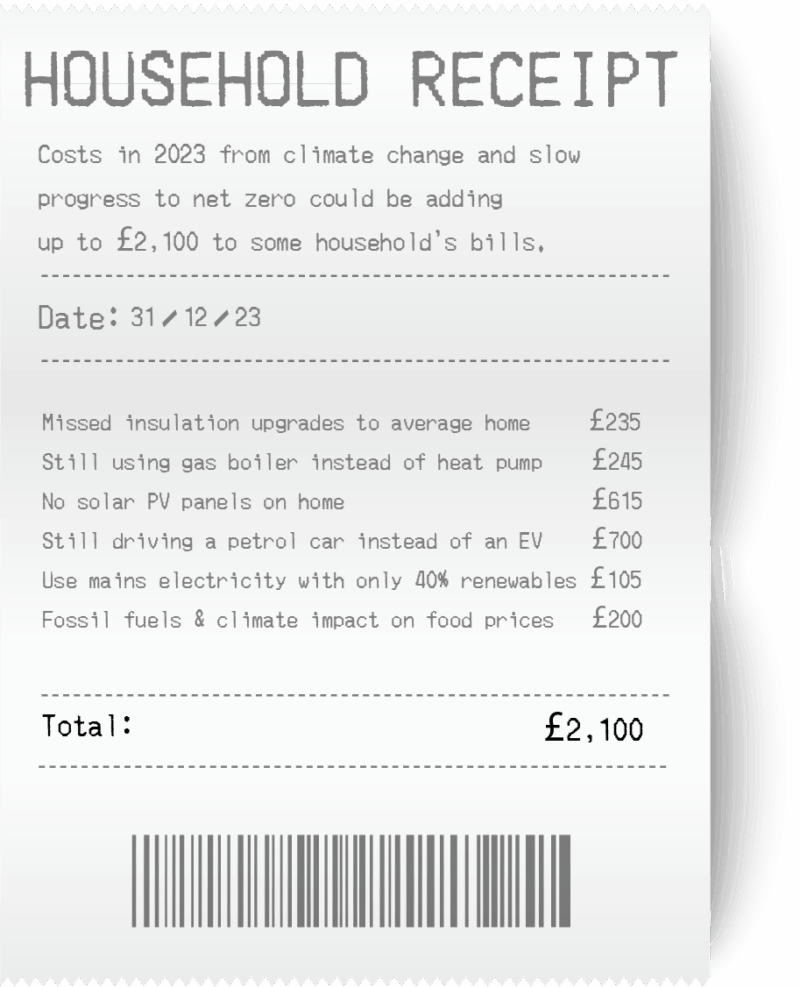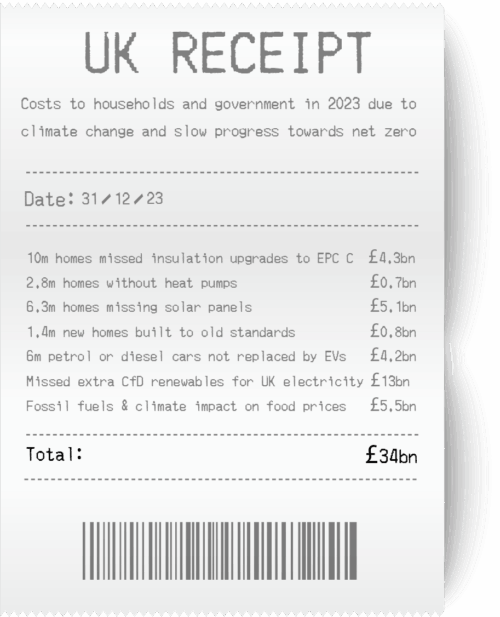Cost of NOT zero in 2023
Cumulative savings of £70bn on the UK’s energy bill could have been made had investments happened over past decade.
Last updated:
Most households could have received one or more of these net zero upgrades, saving hundreds of pounds a year on energy costs. Some households, if they had all of the applicable technologies, could have saved around £1,850 on energy bills in 2022, and almost £1,900 in 2023, for a total of £3,750 over two years dominated by the gas crisis.[1]
Households are facing more than £600 extra in food bills over two years due to the impact of climate change and oil and gas prices on the farming and food sector.
This amounts to a potential £4,350 of costs for some household over two years caused by climate change and the limited roll-out of net zero technologies.
It’s not just households that pay extra. Government support for energy bills during the energy crisis cost up to £300 more per household in 2023, and £150 more in 2022 compared to if net zero technologies had been more prevalent in the UK.
Businesses, charities and the public sector are also paying higher bills due to the slow pace of the transition to net zero. But that’s beyond the scope of this report.
Deployment of net zero technologies would have required upfront investment. This investment would have stimulated growth in industries such as building, car manufacture and renewables. And the investment would have already begun to pay off in the form of lower bills, much more so due the gas crisis that caused prices to spike and has left them high for years to come.
[1] The figure for 2022 has been revised up slightly from our previous report using finalised datasets for that year.

Looking at the millions of items of net zero technology that could have been installed in the past decade, the extra costs for households and government were an estimated £56bn over the two years of 2022 and 2023. And with the extra food bill, the total cost of not zero for households and government comes to £73bn over two years.
The cumulative costs mount up even higher when looking back over a decade of slow progress. From the early 2010s to the end of 2023, energy costs for households (including government support in the gas crisis) have been £70bn higher due to the missing net zero technologies. And with extra food costs sitting at £17bn for just two years, and potentially more if earlier years were to be examined, the total cost of not zero since the early 2010s rises to at least £87bn and counting.

